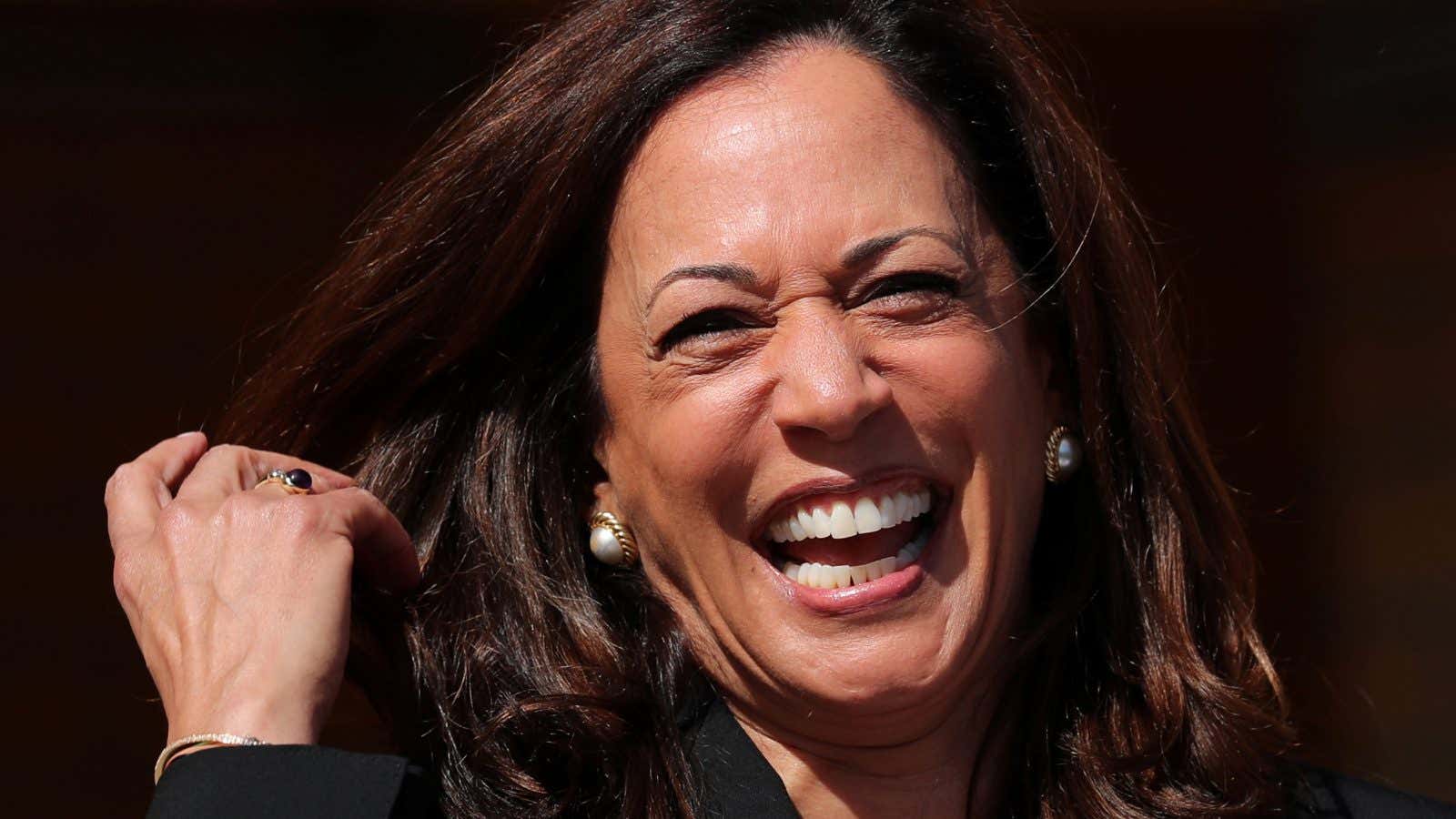It’s been a heartening week for Democrats. Across the US this election season, Democratic candidates reaped the benefits of voter revulsion against the incompetence and excesses of Donald Trump.
But Democrats cannot count on anti-Trumpism alone to carry the party to victory in the 2018 midterm elections, nor in the presidential contest of 2020. For too long, the Democrats have followed the siren call of “electability”—somehow convinced that they can win presidential elections by nominating a safe, experienced candidate running a traditional campaign. This model has invariably failed in recent history, as evidenced by the losing campaigns of Walter Mondale, Michael Dukakis, Al Gore, John Kerry, and Hillary Clinton.
Using my “Keys to the White House” prediction system, I have correctly anticipated the results of every presidential election since 1984, including Donald Trump’s victory in 2016. The system shows that challenging parties have the best chance of overturning the incumbent in presidential elections if they win the following two keys: achieving victory in midterm elections and fielding a charismatic presidential candidate.
To attain the twin goals of winning in 2018 and 2020, then, Democrats need to focus their efforts on identifying and promoting politicians who truly move and inspire voters. I believe that there is one politician in particular who meets this description—who is capable of delivering what is known as a “Muskie moment.”
In 1970, president Richard Nixon’s campaign of fear seemed likely to secure a midterm election triumph for Republicans. He demeaned anti-Vietnam War protesters as “the same thugs and hoodlums that have always plagued the good people,” and charged his political opponents with fostering immorality, lawlessness, riots, and disorder in America. “Our society has been eroded by a creeping permissiveness in our legislatures, in our courts, in our family life, and in our colleges and universities,” he claimed.
Shortly before the elections, senator Ed Muskie of Maine stepped up to challenge Nixon and uphold the values of his Democratic Party. In a nationally televised address, Muskie exposed Nixon’s un-American, divisive tactics and delivered an inspiring and uplifting message about the promise of America and the shared values of its people. “There are only two kinds of politics,” he said. “They are not radical and reactionary or conservative and liberal. Or even Democrat and Republican. There are only the politics of fear and the politics of trust.” He called upon the American people to “cast your vote for trust – not just in leaders or policies – but for trusting your fellow citizens … in the ancient traditions of this home for freedom … and most of all, for trust in yourself.”
The Muskie speech stopped cold the Republican juggernaut in 1970, turning an anticipated GOP victory into a 12-seat loss in the House and a modest one-seat gain in the Senate. Muskie’s positive vision of a united nation resonated broadly with the American people.
Democrats today need a leader who can challenge the divisive politics of Donald Trump and deliver a compelling, hopeful Democratic vision. Despite the Democrats’ off-year success, the American people remain clueless about what the Democratic Party stands for. The party needs a candidate who can not only explain the Democratic plan for improving health care, truly reforming the tax code, improving education, raising wages, and combatting catastrophic climate change, but whose ideas sound fresh and exciting.
This person cannot be from the Democratic old guard. Leave them to their fate as parodies on Saturday Night Live. Indeed, only unconventional Democratic candidates have won the presidency during the last 50 years. Jimmy Carter, Bill Clinton, and Barack Obama were unknown figures from outside the party establishment. Carter campaigned as an anti-government outsider and an evangelical Christian, who promised to end the corrupt politics of the Watergate era. Bill Clinton was the “comeback” kid who excited voters with his idea of a “Third Way” that transcended the orthodoxy of both major parties. Barack Obama was America’s first African-American presidential candidate, and the most inspirational communicator since Ronald Reagan. None of these candidates was more than 52 years old upon assuming the White House.
My choice for the new face of the Democratic party is Kamala Harris, the first-term US senator from California. Harris is a woman of color who, at age 53, is neither too young nor too old to become president. She is articulate and outspoken on issues without becoming offensive. She outshone veteran Democrats in her questioning of attorney general Jeff Sessions at a Senate hearing.
As a former prosecutor with smart new ideas on how to combat crime and reform the criminal justice system, she is not an easy Republican target. Harris fully understands that crying need for a Democratic message beyond being anti-Trump. “The issues are not simple, so the message is not going to be simple,” she said, rejecting any “monosyllabic” slogan, “but essentially it’s about telling the American public we see them.” (Yahoo News, July 18, 2017)
The American people need to see Kamala Harris as the new face of the Democratic Party. But the time for a Muskie moment must be right: Not now, and not on the eve of the midterms. It should be keyed to a pivotal moment in the midterm campaigns, or an outrageous Trump transgression—for example, if he fired special counsel Robert Mueller or pardoned an indicted associate. Harris remains largely unknown today. But so too were Carter, Clinton, and Obama until their explosions into national politics contradicted conventional wisdom—and changed the course of history.




